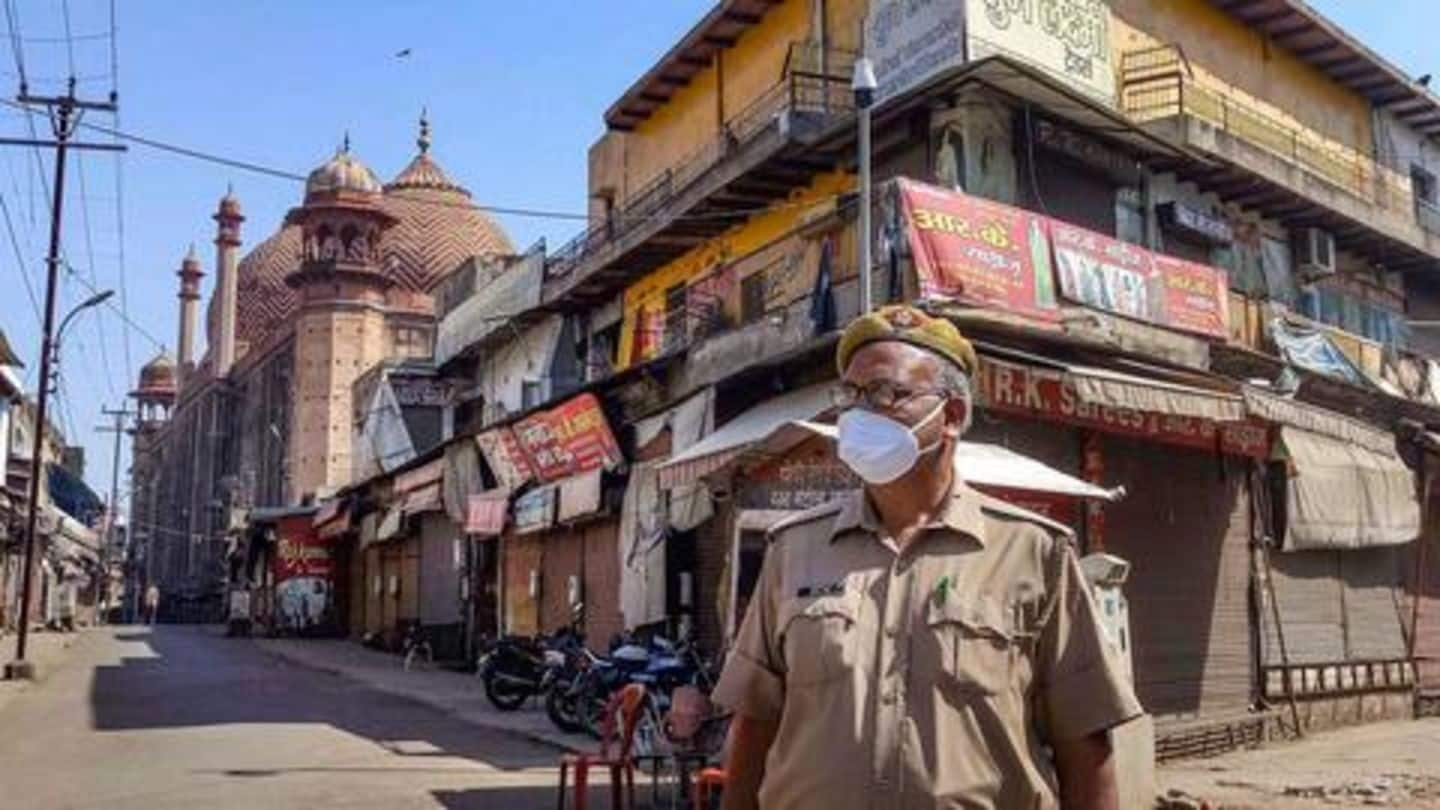
Nationwide lockdown extended till May 31; here are the guidelines
What's the story
The National Disaster Management Authority (NDMA) on Sunday directed the central and state governments to extend the nationwide lockdown till May 31.
Shortly after the NDMA order was made public, the Centre released guidelines for the fourth phase of the lockdown aka "lockdown 4.0."
The third phase of the lockdown is scheduled to end on Sunday night.
Here are more details.
Details
Here is an excerpt from the NDMA order
"Considering the fact that the lockdown measures need to be implemented for a further period in the country to contain the spread of COVID-19, NDMA, in the exercise of powers under section 6(2)(i) of the Disaster Management Act, 2005, hereby directs the Ministries/Departments of Government of India, State Governments and State Authorities to continue the lockdown measures up to May 31, 2020."
Information
NDMA also asked National Executive Committee to modify lockdown guidelines
In its Sunday order, the NDMA also directed the National Executive Committee (NEC) to issue modifications in the guidelines as necessary keeping in view the need to open up economic activities while containing the outbreak.
Twitter Post
You can view the order here
National Disaster Management Authority (NDMA) asks Ministries/ Departments of Government of India, State Governments and State Authorities to continue the lockdown measures up to 31st May 2020. pic.twitter.com/tn0i85kVSK
— ANI (@ANI) May 17, 2020
Guidelines
Here are the guidelines for lockdown 4.0
All domestic and international air travel will remain suspended, except for certain health and security services.
Metro rail services will remain suspended.
Schools, colleges, educational/training/coaching institutions, etc. will remain closed.
Hotels, restaurants, and other hospitality services will remain shut with the exception of those housing healthcare workers, police, stranded persons, etc. Restaurants are allowed to operate kitchens for home delivery of food items.
Guidelines
Cinema halls, malls, gyms, bars, etc. to remain closed
All cinema halls, shopping malls, gymnasiums, swimming pools, entertainment parks, theaters, bars and auditoriums, assembly halls, and similar places will remain shut.
Sports complexes and stadia will be permitted to open, however, spectators will not be allowed.
All social, political, sports, entertainment, academic, cultural, religious functions, other gatherings, and large congregations remain banned.
All religious places/places of worship will remain closed.
Information
Following activities are permitted with restrictions, except in containment zones
The inter-state movement of passenger vehicles and buses, with mutual consent of states/union territories. The inter-state movement of passenger vehicles and buses, as decided by states/UTs. Standard Operating Procedures (SOPs) for the movement of persons shall continue to operate.
Movement
Night curfew; vulnerable groups advised to stay indoors
Movement of persons is strictly prohibited between 7 pm-7 am except for essential activities.
Persons aged over 65, persons with co-morbidities, pregnant persons, and children under the age of 10 are advised to stay at home, except for essential and health purposes.
All states/UTs shall allow the inter/intra-state movement of healthcare workers, sanitation workers, and ambulances, without any restrictions.
National directives
Masks remain mandatory in public places/workplaces; spitting prohibited
Face-covers must be mandatorily worn at all public places/workplaces. Spitting in public places/workplaces is prohibited.
Marriage-related gatherings must ensure social distancing, with no more than 50 guests. Funeral/last rites-related gatherings must ensure social distancing, with no more than 20 guests.
Shops must ensure a six-feet distance between customers, with no more than five customers.
Consumption of liquor, paan, gutka, etc., is banned in public.
Information
'States/UTs shall allow movement of all types of goods/cargo'
All states/UTs shall also allow the movement of all types of goods/cargo, including empty trucks. No state/UT shall stop the movement of any type of goods/cargo for cross land-border trade under treaties with neighboring countries.
Workplaces
Lockdown guidelines for workplaces:
Work from home should be followed as much as possible.
Staggering of work/business hours shall be followed in offices, workplaces, shops, markets, and industrial and commercial establishments.
Provisions for thermal scanning, handwash, and sanitizer, must be made available at all entry/exit points.
Frequent sanitization of the entire workplace, common facilities, and all points that come into human contact shall be ensured between shifts.
Other details
In containment zones, only essential activities allowed
All activities will be permitted except those specifically prohibited. However, in containment zones, only essential activities are allowed.
States are allowed to prohibit more activities, however, there must be no dilution of prohibitions.
Employers must ensure Aarogya Setu is installed on compatible mobile phones of all employees on "best effort basis."
You can view the full list of guidelines on the Home Ministry website.